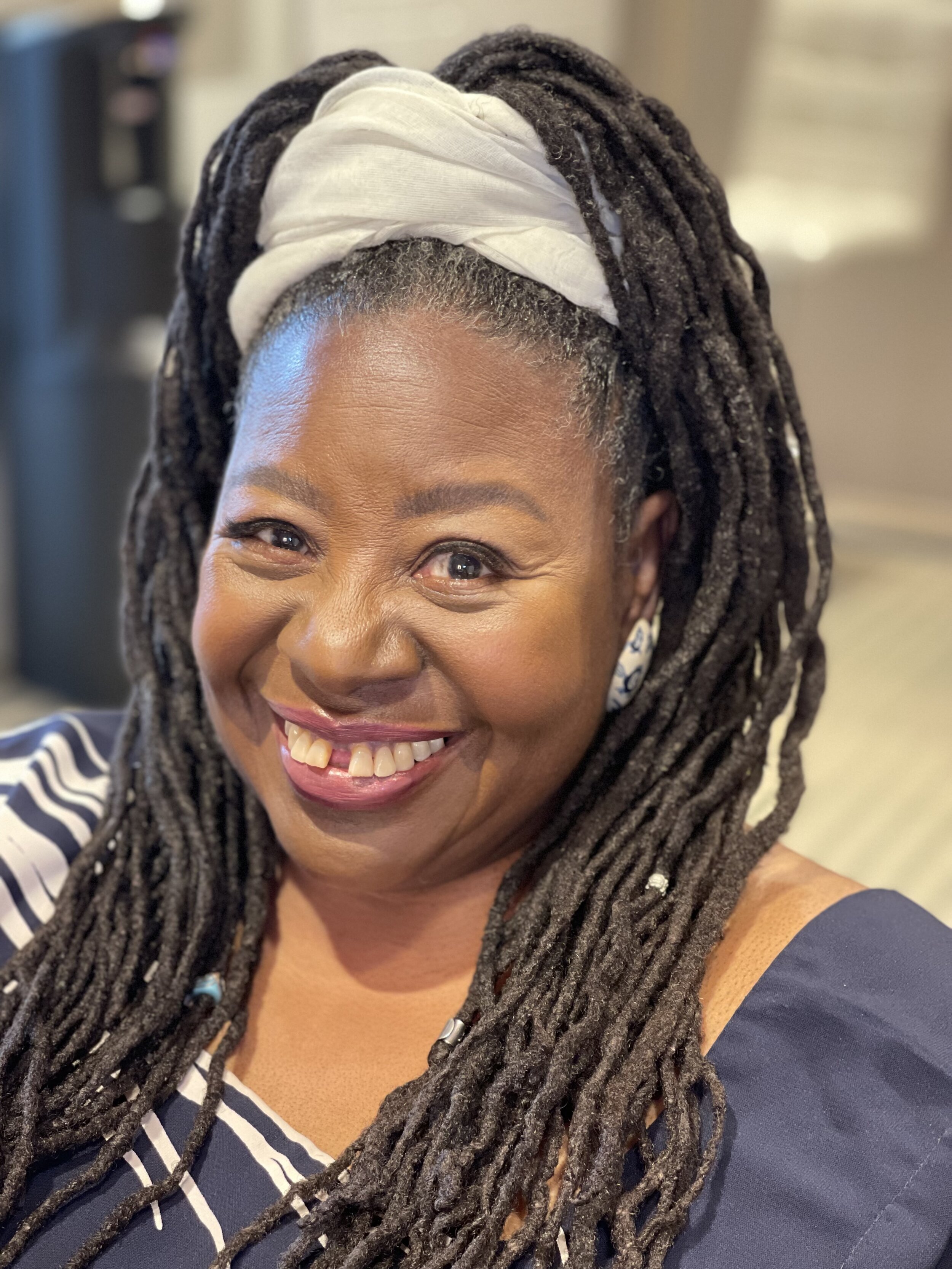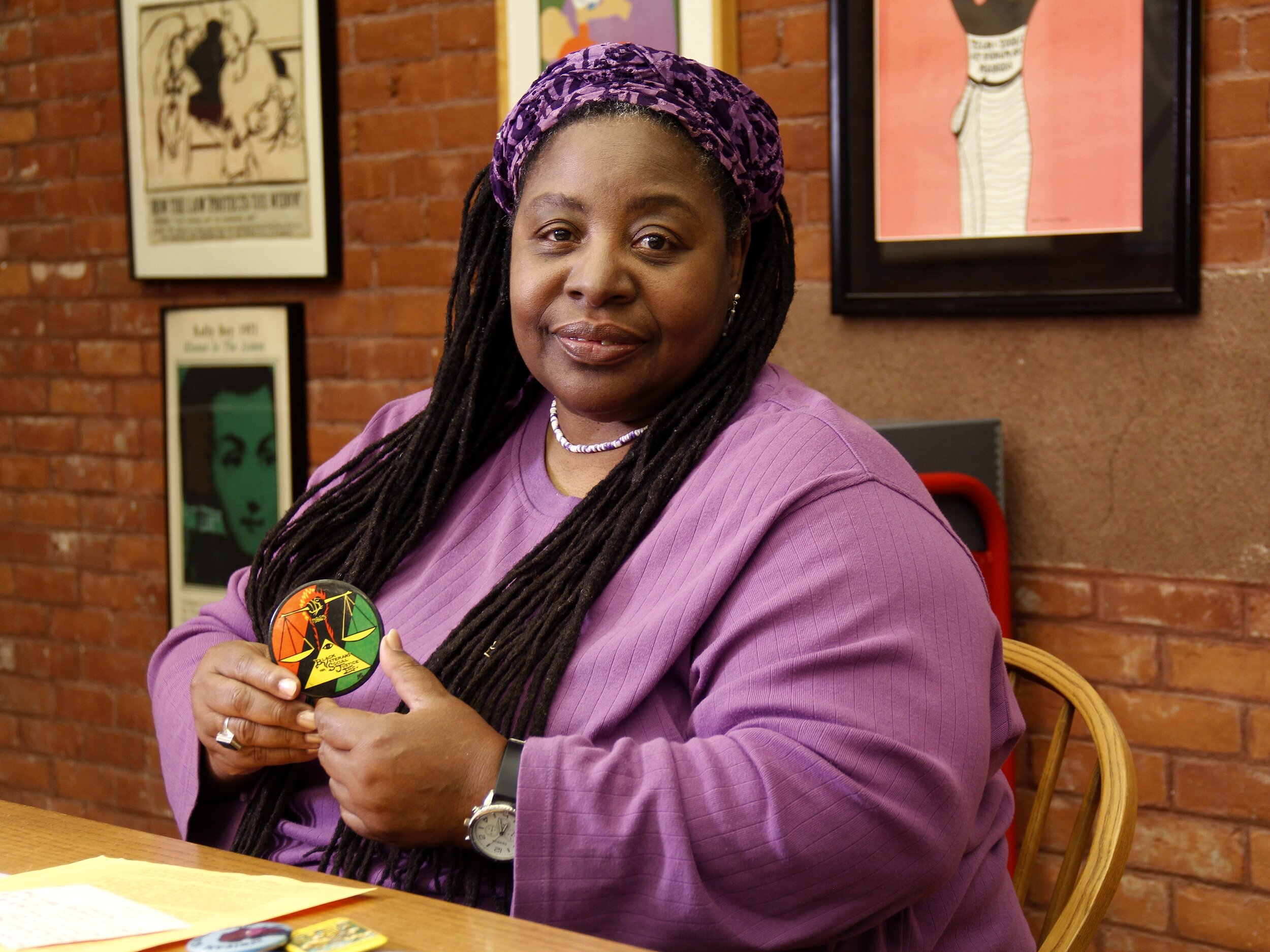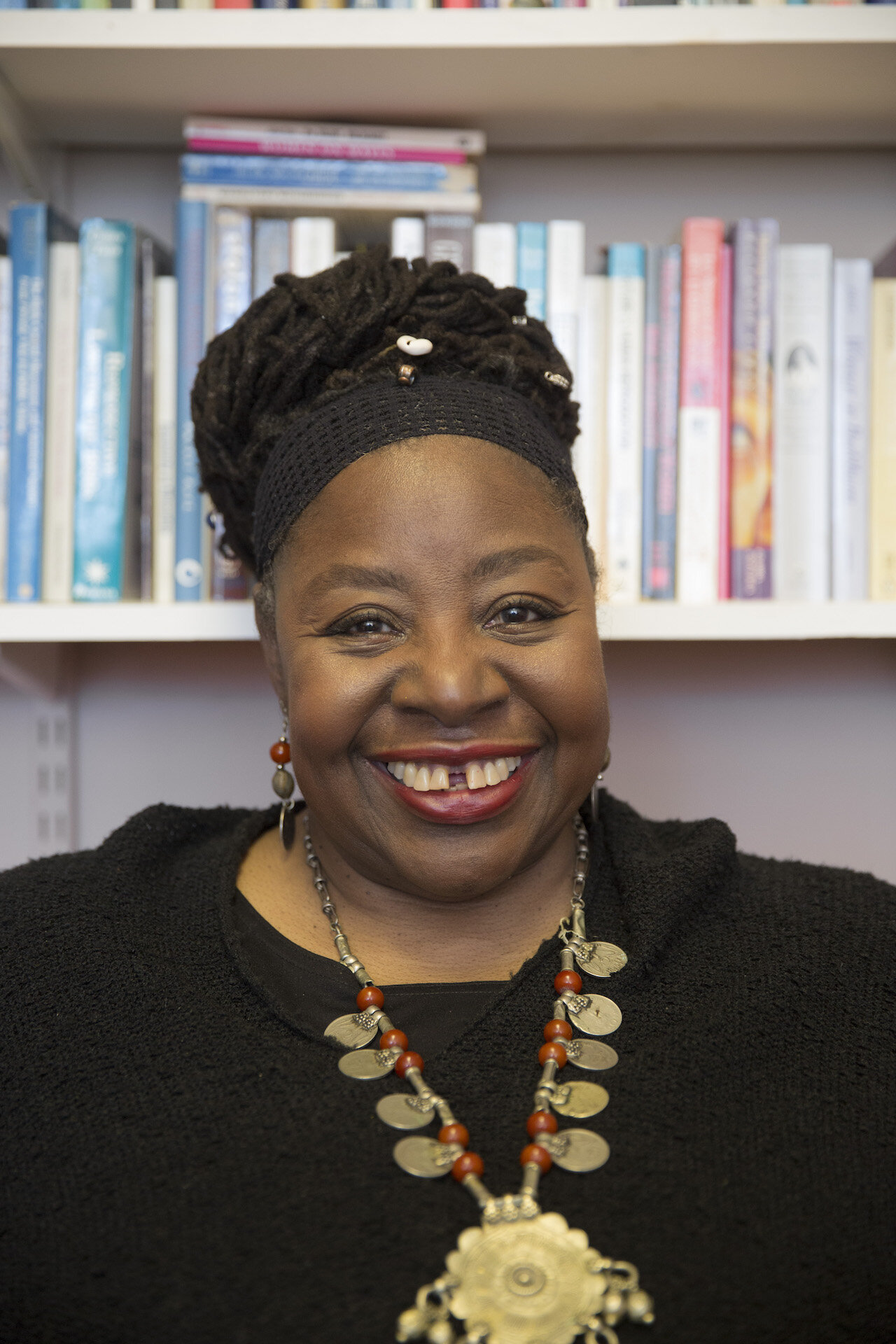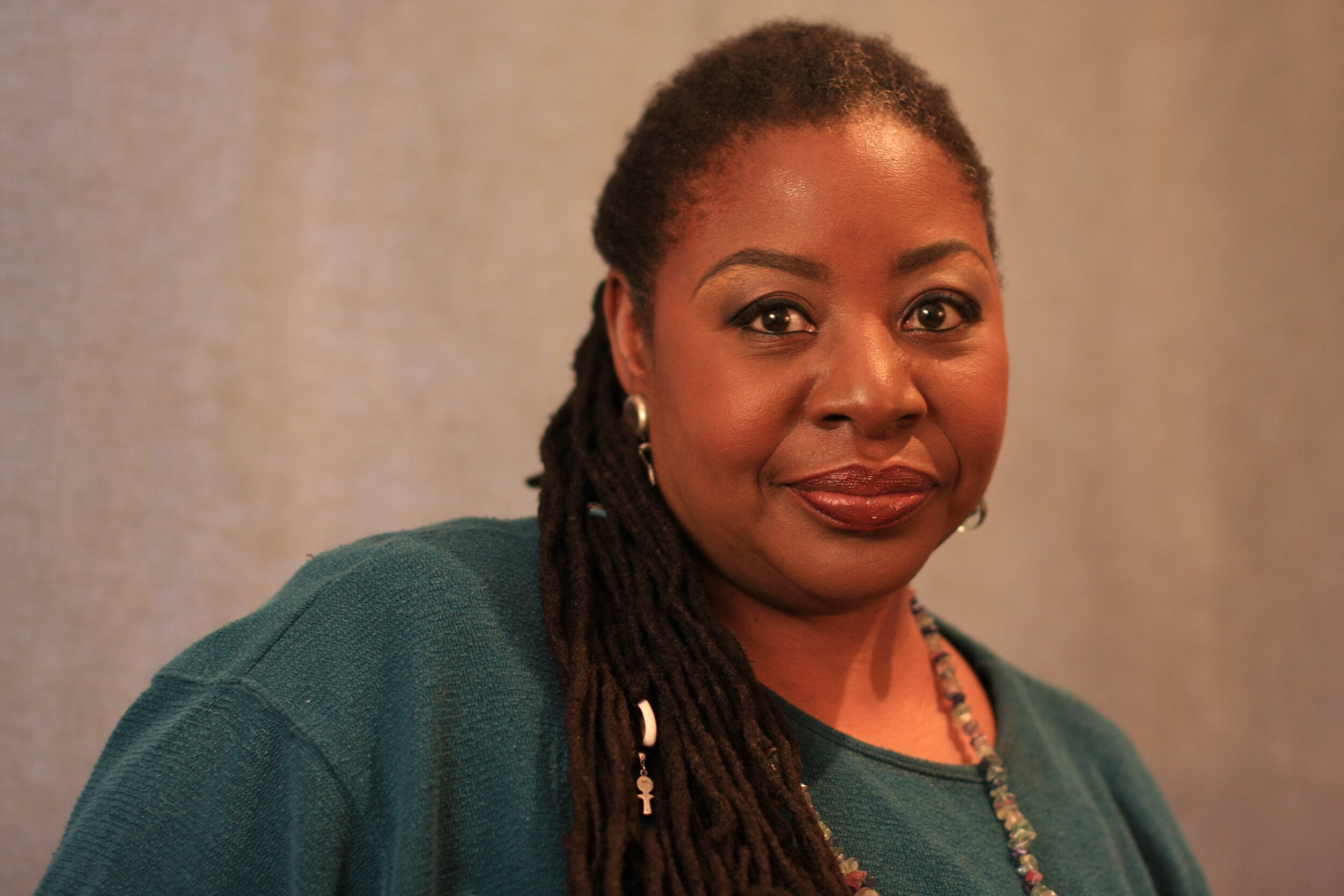To inquire about Media Interviews, please fill out this form.
SHORT VERSION
Loretta J. Ross is an activist, professor, and public intellectual. In her five decades in the human rights movement, she’s deprogramed white supremacists, taught convicted rapists the principles of feminism, and, as National Co-Director, organized the second-largest march on Washington (in April 25, 2004, March for Women’s Lives in Washington D.C., surpassed in size only by the 2017 Women’s March).
A cofounder of the National Center for Human Rights Education and the SisterSong Women of Color Reproductive Justice Collective, her many accolades and honors include a 2022 MacArthur Fellowship and a 2024 induction into the National Women’s Hall of Fame. Today, Ross is an associate professor at Smith College in Northampton, Massachusetts, and is the founder of LoRossta Consulting, with which she runs “Calling In” training sessions online and for organizations around the country.
FULL VERSION
Loretta J. Ross is a Professor at Smith College in Northampton, MA in the Program for the Study of Women and Gender. She teaches courses on white supremacy, human rights, and calling in the calling out culture. She has taught at Hampshire College and Arizona State University. She is a graduate of Agnes Scott College and holds an honorary Doctorate of Civil Law degree awarded in 2003 from Arcadia University and a second honorary doctorate degree awarded from Smith College in 2013. She also has credits towards a Ph.D. in Women’s Studies from Emory University. She serves as a consultant for Smith College, collecting oral histories of feminists of color for the Sophia Smith Collection, which also contains her personal archives. Loretta also is a recipient of a MacArthur Fellow, Class of 2022, for her work as an advocate of Reproductive Justice and Human Rights, and an inductee into the 2024 National Women’s Hall of Fame.
Loretta’s activism began when she was tear-gassed at a demonstration as a first-year student at Howard University in 1970. As a teenager, she was involved in anti-apartheid and anti-gentrification activism in Washington, DC as a founding member of the DC Study Group. As part of a 50-year history in social justice activism until her retirement from community organizing in 2012, she was the National Coordinator of the SisterSong Women of Color Reproductive Justice Collective from 2005-2012 and co-created the theory of Reproductive Justice in 1994.
Loretta was National Co-Director of April 25, 2004, March for Women’s Lives in Washington D.C., the largest protest march in U.S. history at that time with 1.15 million participants. She founded the National Center for Human Rights Education (NCHRE) in Atlanta, Georgia from 1996-2004. She launched the Women of Color Program for the National Organization for Women (NOW) in the 1980s and was the national program director of the National Black Women’s Health Project. Loretta was one of the first African American women to direct a rape crisis center in the 1970s, launching her career by pioneering work on violence against women, as the third Executive Director of the D.C. Rape Crisis Center. She is a member of the Women's Media Center's Progressive Women's Voices. Watch Makers: Women Who Make America video.
Loretta has co-written three books on reproductive justice: Undivided Rights: Women of Color Organize for Reproductive Justice in 2004; Reproductive Justice: An Introduction in March 2017; and Radical Reproductive Justice: Foundations, Theory, Practice, Critique in October 2017. Her newest book, Calling In: How to Start Making Change with Those You'd Rather Cancel is available now!
Loretta is a rape survivor, forced to raise a child born of incest, and also a survivor of sterilization abuse at age 23. She is a model of how to survive and thrive despite the traumas that disproportionately affect low-income women of color.
Loretta is a mother, grandmother, and great-grandmother.





